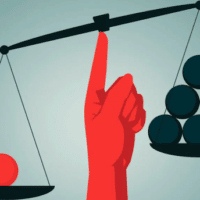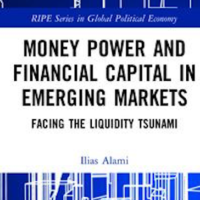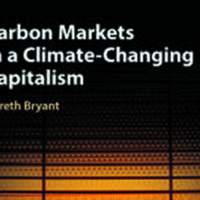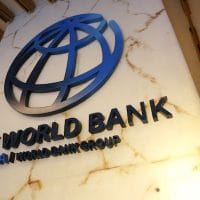-
Foco feminism?: Rethinking the ethics of feminist anti-militarism
As Che argued, sovereignty is a precondition for the realisation of independence and self-actualisation. Revolutionary feminism is similarly an attempt to achieve emancipation for women as a social class as a precondition for their sovereignty.
-
On Michael Lebowitz’s ‘Beyond Capital: Marx’s Political Economy Of The Working Class’
‘Beyond Capital’ helps us to understand why capitalism continues to persist despite endless crises, by drawing our attention to the messiness of human beings and the multiple circuits that reproduce capitalism as a complex and contradictory totality.
-
The global South has lost $152 trillion through unequal exchange since 1960
Dependency and world-systems theorists have long argued that “unequal exchange” is a key driver of global inequality.
-
Power: A re-envisaged state and energy justice
Our contemporary era of perpetual crises demands, we contend, a critical reappraisal of the state’s potential role, to supplant the predominant market-led responses to crisis, to advance a more equitable society. Historically, all major theories of the state—liberal and radical—have been generated in tumultuous eras.
-
Facing a liquidity tsunami? Profit, risk, and discipline in emerging markets
In April 2012, at the White House on her first visit to the United States since her election in 2010, Brazilian president Brazil Dilma Rousseff scolded advanced capitalist economies for unleashing a ‘tsunami de liquidez’, a ‘liquidity tsunami’, onto the developing world.
-
Carbon markets in a climate-changing capitalism
Carbon Markets in a Climate-Changing Capitalism offers an account of why these earlier expectations were not matched by experience. While the contradictions of market solutions have not gone away, the difference this time is that we are just over a decade away from the IPCC’s 2030 benchmark for 1.5°C. The concentration and centralisation of emissions instead points towards a different pathway that can meet this challenge – one that begins by confronting the disproportionate control the biggest polluters have over our climate future.
-
Why the World Bank’s optimism about global poverty misses the point
The World Bank’s latest annual report on poverty and shared prosperity has an unsurprisingly positive message that only 10% of the world’s population lived in extreme poverty in 2015, which is the most recent year that available data allows for global poverty estimates to be made.







